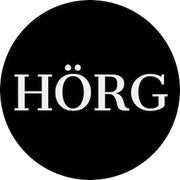Accredited certification
 OEKO-TEX® Standard 100 is one of the most recognized labels in the world for textiles tested for harmful substances.
OEKO-TEX® Standard 100 is one of the most recognized labels in the world for textiles tested for harmful substances.
It stands for trust in customers about the product's high security standards. If a textile product carries the STANDARD 100 label, you can be sure that every part of this product, i.e. every thread, button and other accessory has been tested for harmful substances and that the product is therefore harmless to human health. The test is carried out by independent OEKO-TEX® partner organizations on the basis of an extensive OEKO-TEX® reference list. In the test, they take into account numerous controlled and unregulated substances, which can be harmful to human health. In many cases, the thresholds for STANDARD 100 go beyond national and international requirements. The reference list is updated at least once a year and expanded with new scientific knowledge or statutory requirements. It is not easy for manufacturers and customers to keep an overview of the legal status of harmful substances every day. Experts from OEKO-TEX® institutes do this for them.
 Global Organic Textile Standard (GOTS) has clearly defined criteria and is completely transparent.
Global Organic Textile Standard (GOTS) has clearly defined criteria and is completely transparent.
GOTS is the leading textile processing standard for organic fibers worldwide, including ecological and social criteria, supported by independent certification of the entire textile supply chain. GOTS certified final products can include fiber products, yarns, fabrics, clothing, home textiles, mattresses, personal hygiene products, as well as food contact textiles and more. It makes high ecological demands on the entire value creation chain of natural textiles and also requires compliance with social standards. Having one common standard means that textile processors and manufacturers can export their fabrics and garments with one organic certification that is recognized in all major markets. This transparency also empowers consumers to choose truly organic products sourced from green supply chains.

EcoCert offers recognized standards for organic and ecological textiles, for Fair Trade or for corporate social responsibility. They seek to enable production processes that respect the environment, better management of available energy and natural resources (water, air, soil fertility), a socially responsible sector and better product quality and safety. All these elements are necessary to address today's economic, social and environmental challenges to build tomorrow's world.
 EU Ecolabel is recognized throughout Europe and the whole world.
EU Ecolabel is recognized throughout Europe and the whole world.
The EU Ecolabel is an ecolabel awarded to products and services that meet high environmental requirements throughout their entire life cycle: from raw material processing, to production, distribution and disposal. The EU Ecolabel promotes a circular economy by encouraging manufacturers to produce less waste and CO2 in the production process.The EU Ecolabel also encourages companies to develop products that are durable, easy to repair and recycle
The EU Ecolabel criteria provide urgent guidance for companies that want to reduce their environmental impact and ensure the effectiveness of their environmental actions through third-party monitoring.
 FSC - Forest Stewardship Council is an international non-governmental organization that focuses on promoting the responsible management of the world's forests.
FSC - Forest Stewardship Council is an international non-governmental organization that focuses on promoting the responsible management of the world's forests.
Since its inception in 1994, FSC has grown to become the world's most respected and widespread forest certification scheme.
FSC's pioneering certification scheme, which now covers more than 200 million hectares of forest, allows companies and consumers to choose wood, paper and other forest products made from materials that support responsible forestry . FSC forest management certification confirms that the forest is managed in a way that preserves biodiversity and benefits the lives of local people and workers while ensuring that it remains economically viable. FSC-certified forests are managed according to strict environmental, social and economic standards. There are ten principles that any forest operation must follow before it can obtain FSC forest management certification. These principles cover a wide range of issues, from maintaining high conservation values to community relations and workers' rights, as well as monitoring the environmental and social impacts of forest management.
 Fairtrade is much more than a certification scheme.
Fairtrade is much more than a certification scheme.
Behind the famous Fairtrade logo is one of the largest and most diverse change movements in the world, working with 1.8 million farmers and workers, as well as a global support group of more than 2000 Fair Trade farms in 28 countries, and countless schools, universities and religious groups.
They provide a necessary safety net for producers by setting minimum prices for all key products, while the unique Fairtrade Premium gives farmers and workers additional funds to invest as they see fit. Fairtrade believes that the best way to eradicate poverty is to pay farmers a fair price for their produce and workers a fair wage for their work.
They have the only global sustainability standard that is equally owned and managed by producers, for producers, while Fairtrade workers are protected by strict, transparent standards.
Fairtrade helps to achieve the goals of sustainable development. The overarching goal of eradicating poverty in all its forms everywhere is at the heart of Fairtrade. Their standards are essential development tools that go far beyond certification.
.
